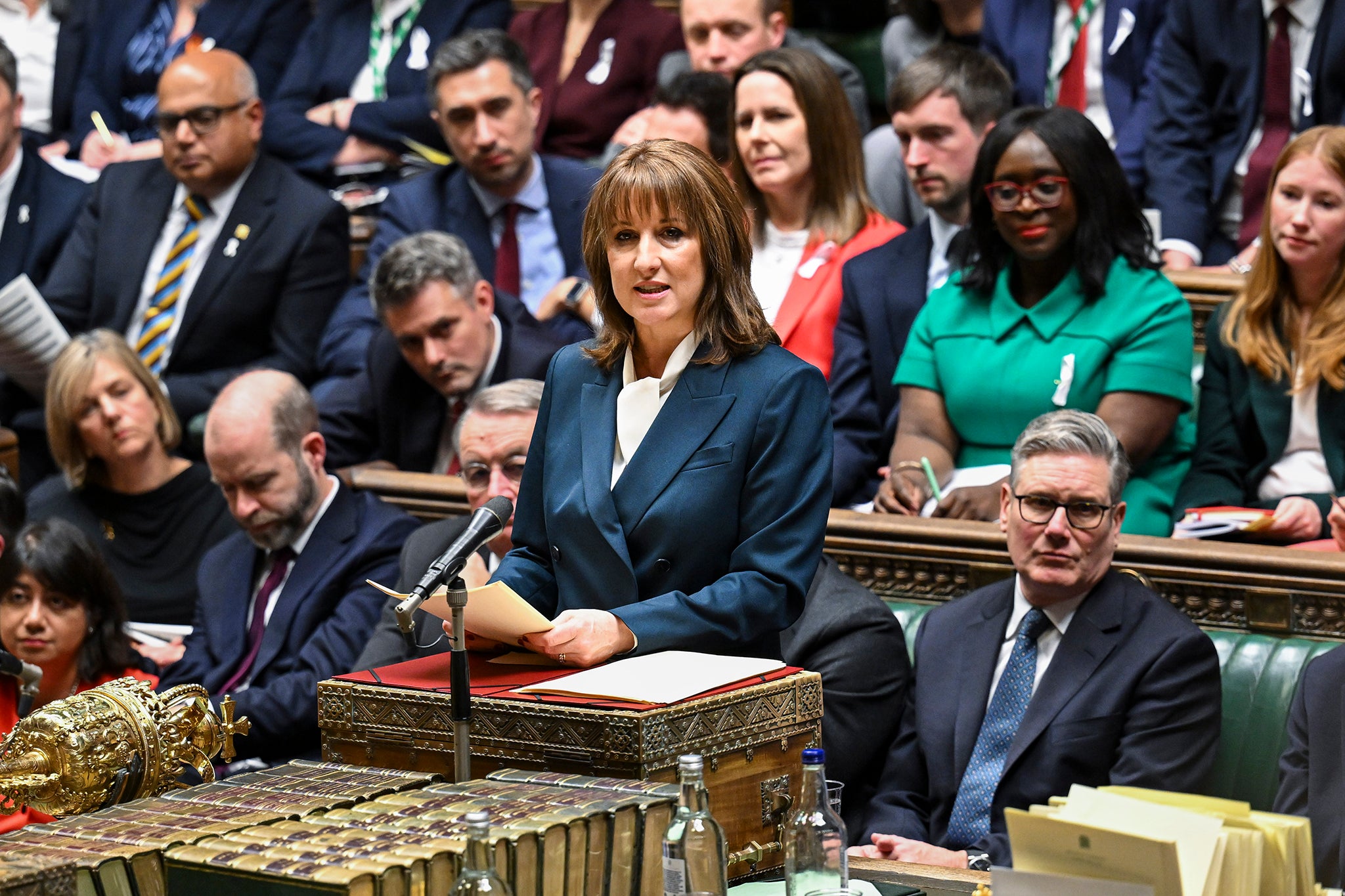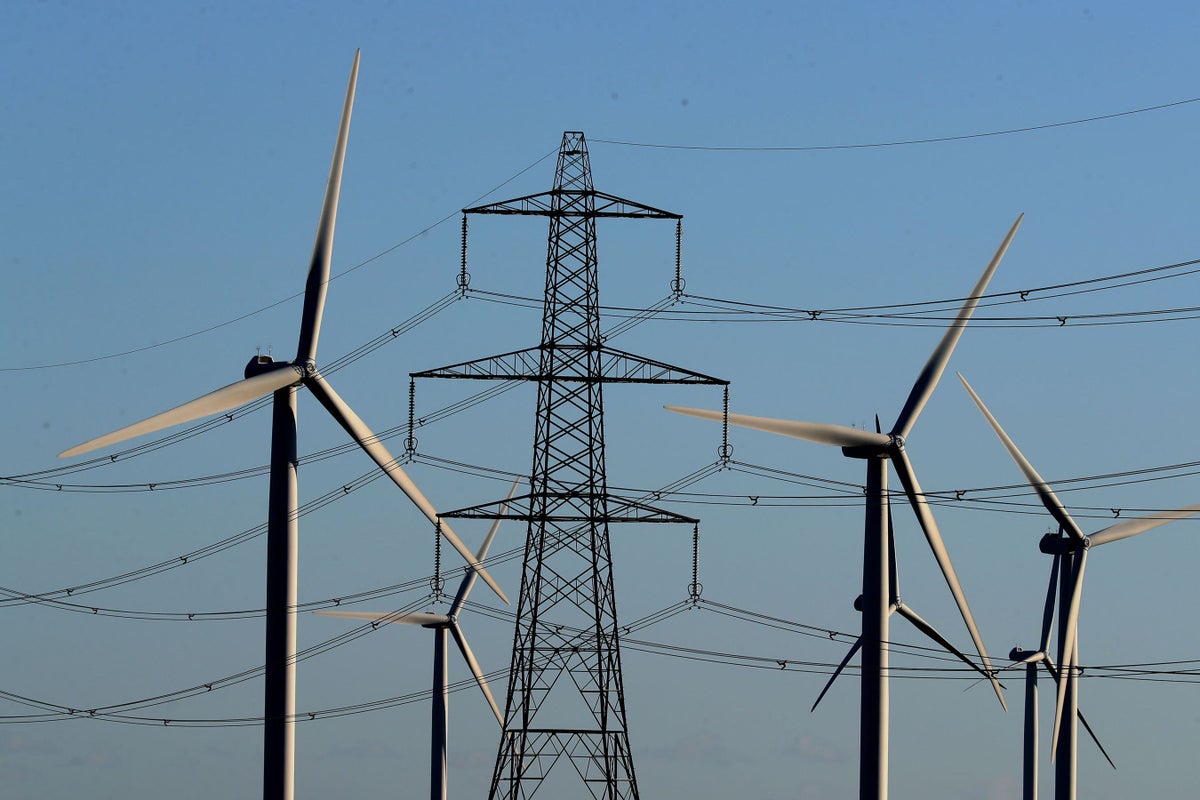- News
- UK
- Home News
Some climate campaigners have criticised the move by Rachel Reeves to cut green levies
Albert TothThursday 27 November 2025 16:50 GMTComments
 CloseRachel Reeves announces scrapping of two-child benefit cap
CloseRachel Reeves announces scrapping of two-child benefit cap
Get the free Morning Headlines email for news from our reporters across the world
Sign up to our free Morning Headlines email
Sign up to our free Morning Headlines email
 Email*SIGN UP
Email*SIGN UPI would like to be emailed about offers, events and updates from The Independent. Read our Privacy notice
An influential think tank has questioned Rachel Reeves’ Budget pledge to cut the average household energy bill by £150 through the scrapping of an energy efficiency programme.
Speaking at Wednesday’s fiscal event, the chancellor said the energy company obligation (ECO) scheme will be ended to remove the levies that the programme adds to energy bills. At the same time, the government will absorb most of the cost of subsidies for older renewables projects for three years, taking this out of energy bills.
Combined, the measures should save an average £154 from next April, the Treasury claims. However, the Institute for Fiscal Studies (IFS) has said these savings will drop to just £39 from 2029/30 when the temporary subsidy ends.
IFS director Helen Miller said: “While it has given some substantial tax cuts on energy bills over the next few years, the longer-term offerings are much more paltry, cutting only £39 per year off bills from 2029/30 onwards.”
The finding will come as a blow to the chancellor, who said at the Budget that the high cost of energy was “one of the greatest drivers of the rising cost of living”.
 open image in galleryRachel Reeves announced Labour’s 2025 Budget in the Commons on Wednesday (House of Commons)
open image in galleryRachel Reeves announced Labour’s 2025 Budget in the Commons on Wednesday (House of Commons)Announcing the change, the chancellor said: “The Conservatives’ ECO scheme was presented as a plan to tackle fuel poverty.
“It costs households £1.7 billion a year on their bills and for 97 per cent of families in fuel poverty, the scheme has cost them more than it has saved.
“It is a failed scheme, so I am scrapping that scheme along with taking other legacy costs off bills.”
Climate campaigners have reacted negatively to the move, describing the move to ditch the energy company obligation – a scheme which provides efficiency measures such as insulation for fuel-poor homes – as “a devastating blow” that cuts funding for measures that permanently bring down bills.
The government also said it would provide an additional £1.5 billion capital investment to tackle fuel poverty through its warm homes plan, in addition to the £13.2 billion of funding allocated in the spending review earlier in the year.
Reducing the cost of electricity, on which most levies fall, relative to gas, is seen as key to encouraging people to switch to clean electric technology such as heat pumps and electric cars.
But while the chancellor’s decision to take renewables subsidies off bills, a widely called-for move, was welcomed, campaigners said the scrapping of ECO would cut funding for green homes from £20 billion to £15 billion over the course of this parliament.
 open image in galleryThe Government also said it would provide an additional £1.5 billion capital investment to tackle fuel poverty (Jacob King/PA) (PA Wire)
open image in galleryThe Government also said it would provide an additional £1.5 billion capital investment to tackle fuel poverty (Jacob King/PA) (PA Wire)Ed Matthew, campaigns director at the independent climate change think tank E3G, said: “Cutting taxes from electricity bills is a crucial step towards helping people to switch to clean energy.
“But this is overshadowed by the morally indefensible decision to scrap the national home insulation scheme ECO.
“This is exactly the kind of sticking plaster politics this government promised to end, and fatally undermines the best long-term solution to fuel poverty.
“It will also cost 10,000 jobs and prevent one million families from insulating their homes in the next four years.”
The most recent version of the ECO scheme failed as a result of poor regulation and oversight, leaving thousands of homes with poor quality and even dangerous solid wall insulation, but E3G argue that the obligation should be reformed, not axed.
Chaitanya Kumar, head of economic and environmental policy at NEF, said: “Removing the [renewables obligation] costs from bills will help in the short term, but the chancellor is wrong to say the ECO scheme costs more than it saved. The problem is a broken retrofit supply chain and not the principle of helping people cut their energy bills for the long term.
“By cutting £6.4bn of ECO support and replacing it with a £1.5bn fund, the budget potentially leaves thousands of low-income households stranded in cold, inefficient homes and denies them the permanent savings that energy-efficiency reliably delivers.”
More about
Energy BillsRachel ReevesBudgetenergy efficiencyJoin our commenting forum
Join thought-provoking conversations, follow other Independent readers and see their replies
Comments

